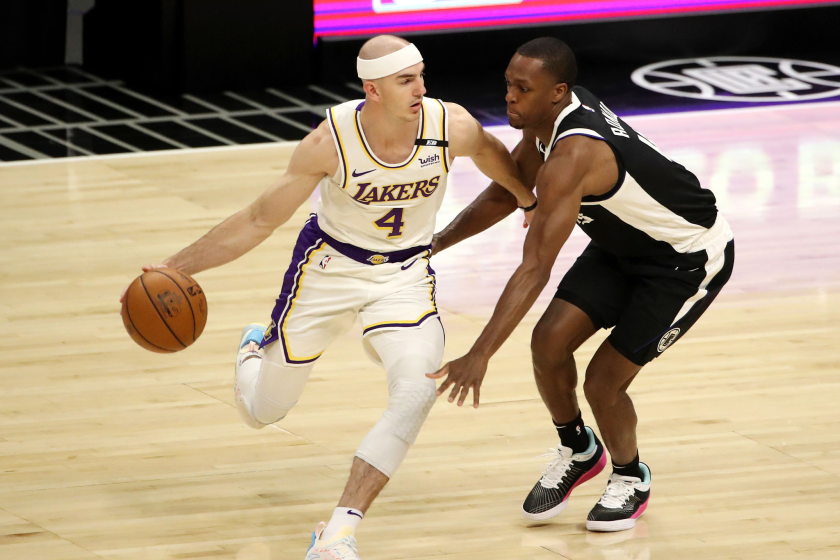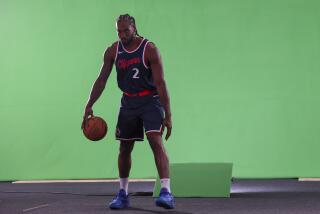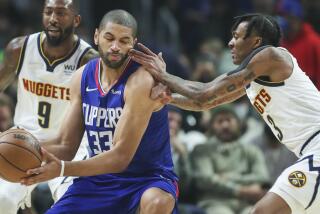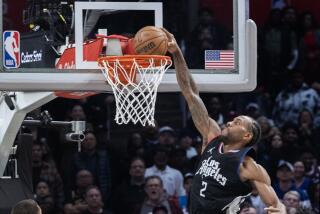DeMarcus Cousins on the Clippers: Five takeaways from his signing
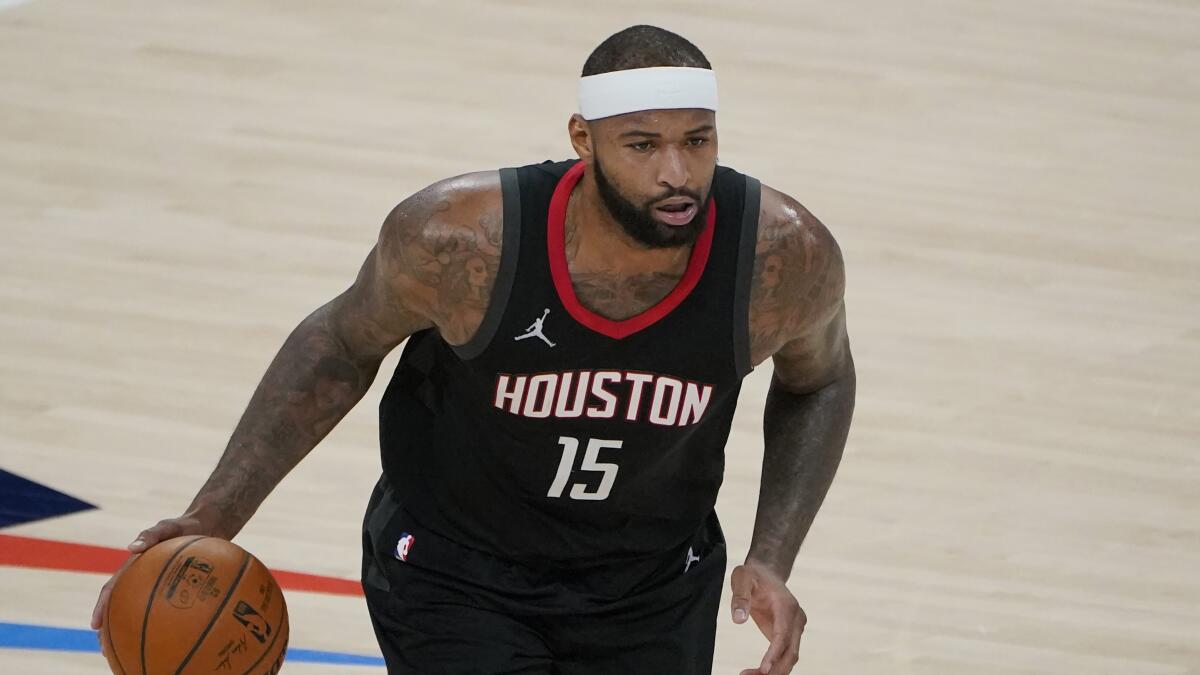
- Share via
DeMarcus Cousins is a Clipper — for at least the next 10 days.
After clearing the NBA’s COVID-19 testing protocols the four-time All-Star center signed a 10-day contract Monday to provide more depth in the post as the Clippers wait for starting center Serge Ibaka to return from a back injury that has sidelined him three weeks.
Five takeaways on what the signing of Cousins, who hasn’t played since Feb. 17, could mean:
1. For a second consecutive season the Clippers use one of their last roster spots on a former All-NBA-caliber center hoping to resuscitate his career. Last year it was Joakim Noah who signed a 10-day contract with the intent that he agree to a second, followed by a deal that would run through the season’s end — all of which came true.
Is this first 10-day contract just the first step to a monthslong union between the 30-year-old Cousins, who last played in Houston, and his new team? That is not guaranteed. This first 10 days will serve as an evaluation of how he fits.
Team president Lawrence Frank said last month that the Clippers needed to find “the right person” to fill its 14th and 15th roster spots.
The Clippers are making sure point guard Rajon Rondo gets acclimated to the team so he’ll be ready to help during its push for an NBA championship.
“Because if that person isn’t in the rotation, can that person sit and be OK?” Frank said. “Because anyone can play and be a good teammate. But if you’re not playing, we want to make sure we have really good chemistry in the locker room, and that’s a sanctuary.”
2. Bringing in Cousins, who will wear No. 15, is about need, familiarity and production.
Daniel Oturu, the center from Minnesota the Clippers drafted 33rd overall in November, strained a quadriceps during a G League practice in February and missed some time, but even before then was receiving scant minutes with the Clippers. Without a third, playable big man to absorb the minutes that became available when Ivica Zubac replaced the hurt Ibaka in the starting lineup, the Clippers leaned heavily on 6-foot-8 forward Patrick Patterson. After playing in 10 of the first 38 games, he’s played in 12 of the last 13. But that wasn’t a sustainable solution at center. Enter Cousins.
3. If Cousins does stick with the Clippers longer than his initial 10 days, an important factor could be that he already has deep relationships with a few already on the roster. Rajon Rondo played with Cousins in Sacramento and New Orleans, and the pair are close friends. Patterson’s history with Cousins goes back more than a decade to college at Kentucky. In addition, he spent weeks around Paul George in 2016 as part of the gold medal-winning U.S. men’s Olympic team in Brazil.
Cousins was “not happy” to be a backup center with the Rockets, ESPN reported upon his departure from Houston. Given their long ties with Cousins, Rondo and Patterson have the potential to be important voices who can reinforce that he understands, and sticks to, whatever role he is given.
4. As for production: While the signing of Noah was a means to bringing in a veteran voice to play emergency minutes and help Zubac’s development, Cousins arrives off of a much shorter layoff and could provide immediate on-court production.
He averaged 9.6 points, 7.6 rebounds and 2.4 assists during 25 games in Houston, playing 20 minutes a game.
How much time might Cousins be looking at? Patterson has averaged 13.8 minutes primarily as the Clippers’ small-ball center in his last 12 games. It figures that is where any minutes Cousins receives would come from.
5. The caveat, of course, is health. Cousins has suffered injuries to an Achilles tendon, quadriceps and knee ligament within the last three years. His usage in Houston was promising: After averaging 14 minutes in his first 10 games, he averaged 24.2 over his final 15, including 10 starts, because of injuries to other Rockets.
“I think he has a lot left,” Rondo told ESPN last week. “I know he has a lot to prove to himself and the league and he probably wants to prove as many people wrong as I do for him. … I’m hoping for the best. He’s had a tough road to get back to this point where he is.”
More to Read
Get our high school sports newsletter
Prep Rally is devoted to the SoCal high school sports experience, bringing you scores, stories and a behind-the-scenes look at what makes prep sports so popular.
You may occasionally receive promotional content from the Los Angeles Times.

